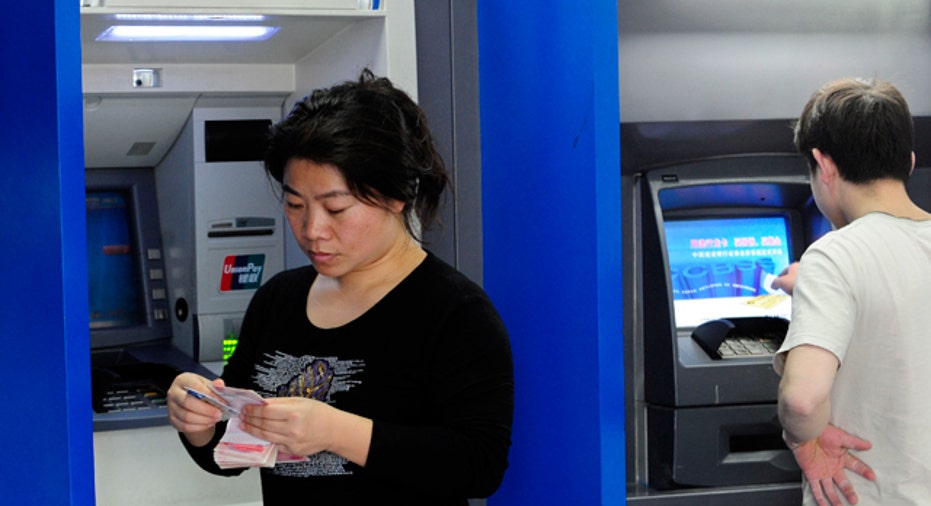Does Your Bank Spy on Your Spending Behavior?

Is your bank snooping on you? Increasingly, the likely answer is yes.
Banks are harnessing new tools to dig into your financial psyche. Credit bureaus and software companies are rolling out more data-digging services, ranging from behavioral scores that measure how and when you spend money to estimates of your liquid wealth, which is any asset easily converted into cash.
Banks are using the resulting reams of data to cross-sell more banking products to consumers or to monitor bank accounts and assess risk.
"Banks are always assessing risk," says Tena Friery, research director at the Privacy Rights Clearinghouse, a San Diego-based nonprofit organization that provides consumer information and advocacy. "And some new credit bureau products go beyond credit report ratings."
Some customized credit scores predict consumers' likelihood of filing for bankruptcy or gauge their levels of discretionary spending.
Leaning on these scores helps banks make better loan or credit card decisions. But lately, some are also crunching data to cross-sell bank products, such as securities, to their account holders.
"Now that everything is electronic, available information has exploded," Friery says.
FICO credit scores still count when evaluating new accounts at some banks. For example, online bank Ally states on its deposit agreement that it may use credit reports to decide whether to allow a potential customer to open a new bank account.
Many banks already rely on a little-known tool called ChexSystems, a credit reporting agency that gathers information about closed bank accounts, bounced checks and overdrafts, Friery says. But banks are now going beyond these basics to assess risk and to make the most of their advertising dollars. For example, your purchasing history can be used for marketing loans, credit cards or other products, she says.
New Credit Scores by Banks
Here are some key types of credit scores worth noting.
- Wealth estimators. The credit bureau Equifax offers an estimation of liquid wealth through its subsidiary, IXI Corp. The goal is helping banks gauge their pricing strategies. To do that, IXI measures about $10 trillion in U.S. consumer assets and investments -- or more than 42% of all U.S. invested assets -- furnished by 95 U.S. financial institutions.
- Transaction scores. Debit or credit transactions are tracked whenever you swipe your card. They're usually used to predict fraud, says John Ulzheimer, president of consumer education at SmartCredit.com and author of "You're Nothing but a Number." But there's another reason to track transaction scores, Ulzheimer says. Banks can forecast account risks by tracking changes in spending behaviors. Financial and marriage difficulties can be flagged by credit card and debit card indicators such as use at pawnshops or marriage counseling offices.Banks probably won't close your account, but various types of risk are aggregated to come up with an overall score, Ulzheimer says. Low- or moderate-risk folks need not worry, but atypical spending behavior can be problematic for high-risk consumers, he says. It can indicate a higher risk of fraud.
- Behavior scores. Fair Isaac Corp., which invented the FICO credit score, rates bank depositor behaviors. Bank deposits and withdrawals are analyzed to predict future account handling behavior, Friery says. Information gleaned helps banks cross-sell products. It also helps them to evaluate risk by noting whether you carry balances on your credit cards or make late payments.
More Credit Scoring Coming
Observation of consumer banking behavior began in earnest in 2001 when the USA Patriot Act was passed. Some of its rules require banks to perform due diligence on customers such as verifying identity, noting account activity and mitigating risk.
Such large amounts of collected data worry privacy advocates. Banks and credit card companies send out annual privacy notices that detail information-sharing practices, but consumers ignore them, says Friery. The only real privacy comes when consumers opt out.
While notices are sent to consumers, these new scores used to rate consumers usually aren't available to them, Ulzheimer says. So it's impossible to know what behavior involving transactions might improve your score.
In the future, the breadth of credit scoring on banking consumers is sure to grow as scoring increases in importance.
"Worry about having a good credit score," Ulzheimer says. That way, other scorings become less important.



















